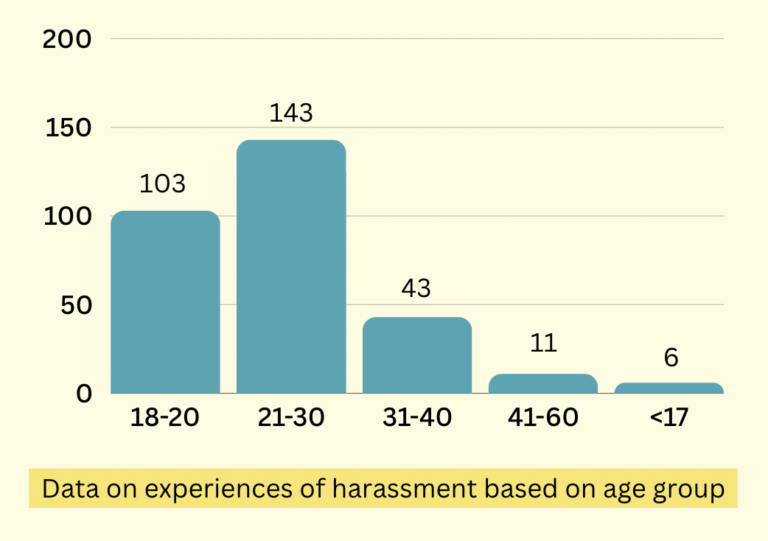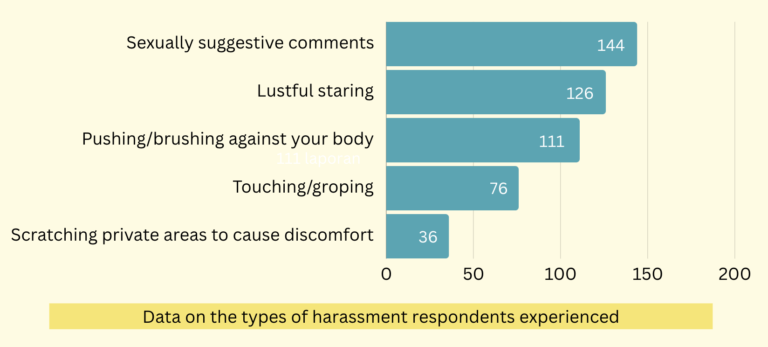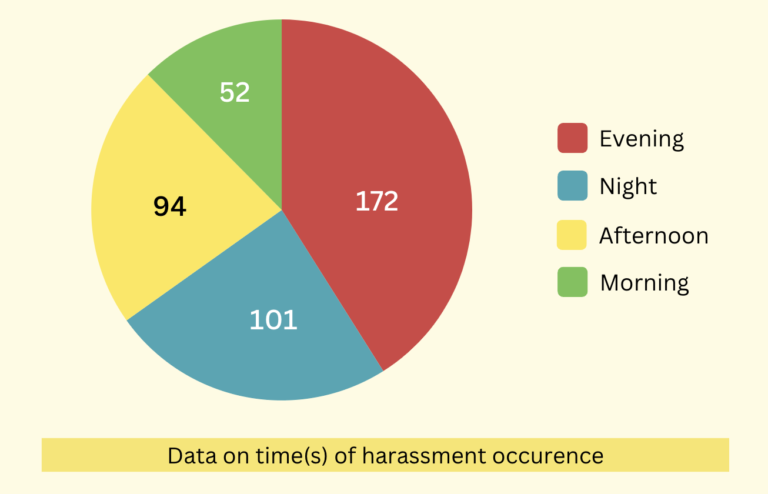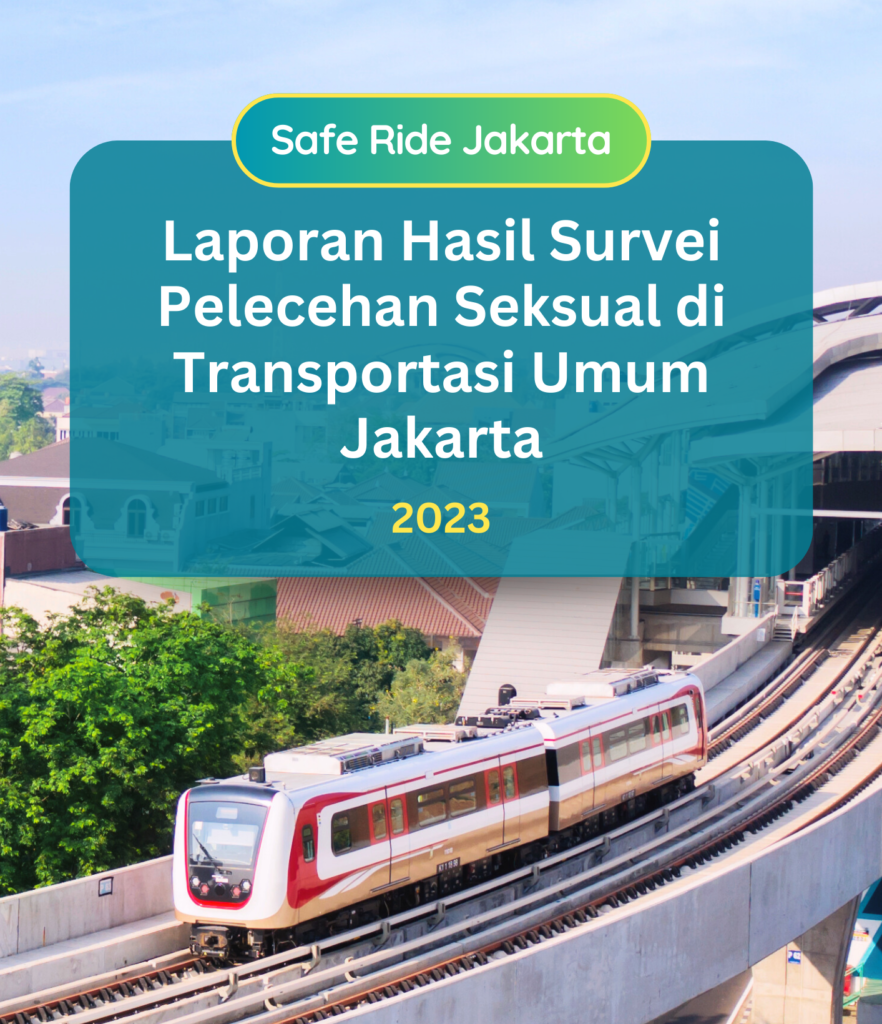Bullyid Indonesia Launches Survey on Sexual Harassment in Public Transportation in Jakarta
Jakarta, April 3, 2024 – In October 2023, Bullyid Indonesia launched its latest initiative, Safe Ride Jakarta, aimed at addressing the prevalent issue of sexual harassment in public transportation and its surrounding areas. The campaign, spanning various activities from Youth Ambassador Training at ITL Trisakti to impactful talk shows, aims to raise awareness and promote safety for all commuters. As a pivotal part of the campaign, Bullyid Indonesia conducted a comprehensive survey to gauge personal experiences and observations of inappropriate behavior, including incidents of sexual harassment, across diverse modes of public transportation. This encompassed not only traditional means but also extended to online ride-hailing services like car and motorbike taxis, as well as their associated locations such as platforms and stations, where individuals might feel vulnerable.
The survey, conducted over a little more than two months, gathered responses from 449 people. It showcased a wide range of gender identities: 26.9% were male, 72.8% were female, and 0.2% identified as “other.” The ages of participants varied from under 17 to over 60 years old, indicating a broad spectrum of life stages. The respondents came from diverse professional fields, such as students, employees in the private sector, government officials, NGO workers, and freelancers. This variety highlights the survey’s inclusiveness and its applicability to different parts of society.
The results showed that 68.15% of respondents (306 people) experienced sexual harassment on public transport. Of these, 74.51% were female, 25.16% were male, and there was one report from another gender category. The majority of reports came from individuals aged 21-30 (143 reports) and 18-20 (103 reports), highlighting that younger age groups faced more incidents.


The survey shed light on the harassment experiences of its respondents, focusing on both verbal and physical incidents on public transportation. Participants were asked to specify the harassment types they faced. The most common form of verbal harassment reported was “Sexually suggestive comments” with 144 instances, closely followed by “Lustful staring” at 126 instances.

On the physical front, “Pushing/brushing against your body” was noted 111 times, pointing to the discomfort in crowded public transport settings. Additionally, “Touching/groping” was reported 76 times. A particularly disturbing behavior, “Someone scratching private areas to cause discomfort,” was reported 36 times. These results underline the widespread issue of harassment in public transport areas, calling for immediate measures to combat and prevent such unwelcome behaviors.
Bullyid Indonesia’s study pinpointed frequent spots for sexual harassment, notably on trains (99 instances) and buses (84 instances), with occurrences also high on roadsides (73), at terminals (54), bus stops (47), and platforms (47). These findings pinpoint where efforts to boost safety should focus. The study also found that harassment was most common in the evening (172 instances) and at night (101), suggesting a need for increased security during these times.


The emotional impact of harassment was significant, with “Disgust” (206 instances) being the most common feeling, followed by “Anger” (182), “Fear” (99), and “Sadness” (51). Responses varied, with 127 individuals choosing non-verbal reactions, 93 confronting verbally, and 86 reporting the incidents. Yet, some chose to ignore (50) or do nothing (39), highlighting the complex ways people handle harassment. The study also touched on why some people don’t act against harassment, including fear of causing a scene or of the harasser, and why bystanders may hesitate to intervene.
The data suggests a significant issue with harassment in public transportation, with sexually suggestive remarks and unwelcome staring being the most prevalent. The high number of incidents involving physical contact, especially in crowded conditions, indicates a critical need for improved safety measures and public awareness campaigns. The variety of harassment forms, including less common but highly invasive actions, highlights the complexity of the issue and the necessity for targeted interventions. Addressing these challenges requires a multifaceted approach, including policy changes, increased security measures, and public education to foster a safer and more respectful environment for all public transport users.
Despite measures like women-only carriages and anti-harassment signs, Bullyid Indonesia’s research stresses the need for further actions to combat sexual harassment on public transport. The report calls for collaborative efforts from transportation companies, law enforcement, and government agencies to improve safety and create a respectful environment. It underscores the necessity of ongoing awareness and prevention initiatives to ensure safer public spaces for everyone.


